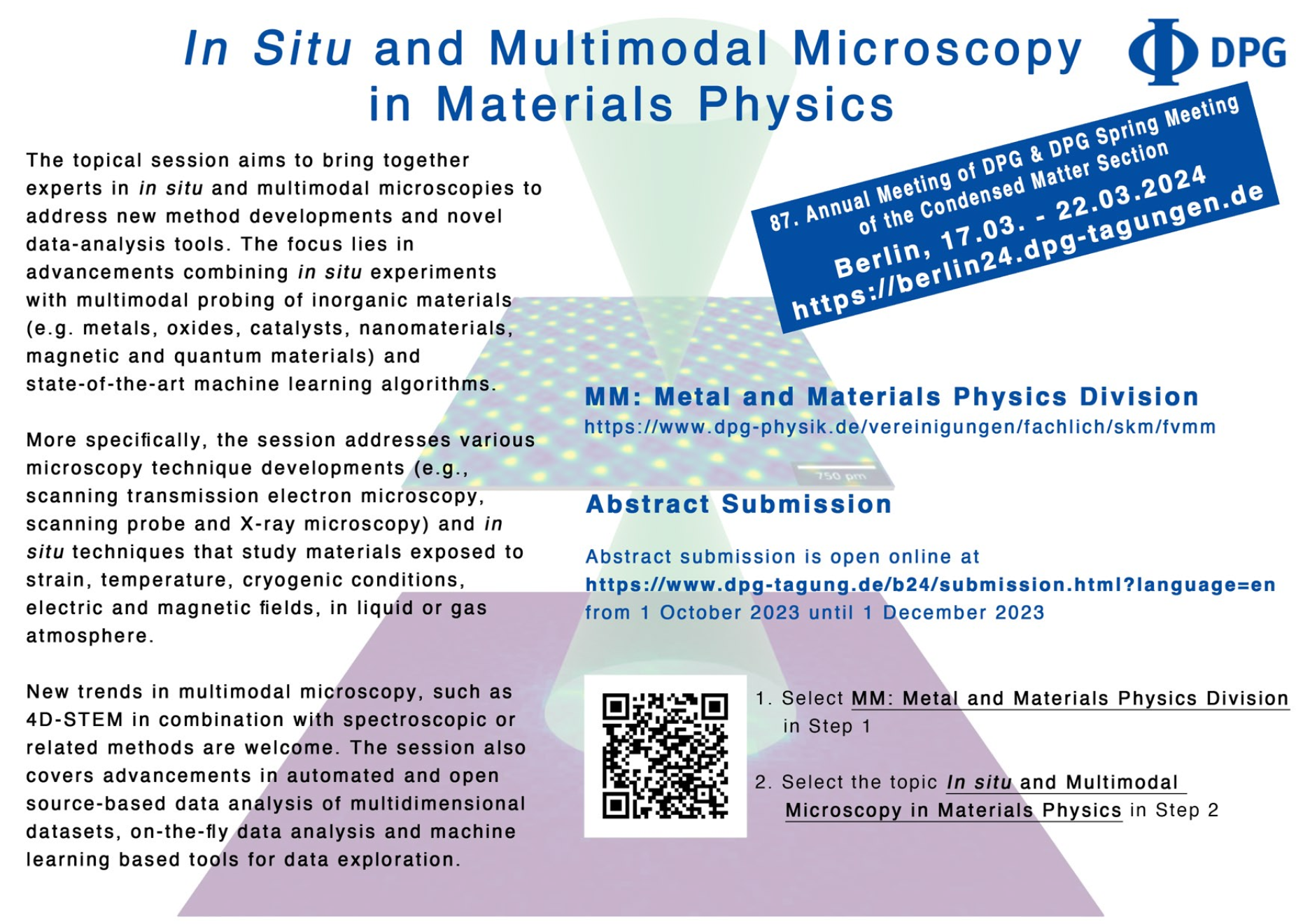DPG Spring meeting 2024
Philipp is organizing a topical session at the DPG spring meeting 2024 together with Christian Liebscher and Luca Ghiringhelli.
Title: In Situ and Multimodal Microscopy in Materials Physics
Abstract: Observing and analyzing materials under realistic conditions using multiple signals with advanced microscopy techniques is becoming increasingly important to elucidate their underlying physical properties. The advancement of in situ capabilities and new detector technologies have enabled to probe the dynamic evolution of materials under different stimuli, such as temperature, cryogenic conditions, in liquid and magnetic as well as electric fields with high spatial and temporal resolution. Furthermore, with the advent of pixelated, direct electron detectors, it has become possible to design novel imaging modalities by using the full diffraction information in each scan position, termed 4D-STEM. This technique opens the door to mappingcrystal orientations in nanomaterials, measuring strain with high spatial resolution or even imaging light elements in complex compounds at atomic resolution. Modern detectors’ increasing speed even allows combining in situ experiments with 4D-STEM or other spectroscopic techniques to holistically explore material evolution. The ever-growing data streams associated with such experiments also require the development of novel analysis algorithms. Fast and automated data analysis routines will provide on-the-fly feedback while performing the experiment and the implementation of machine-learning based tools will eventually facilitate an autonomous exploration of the data spaces providing pathways to new material discoveries.
The symposium aims to bring together experts in in situ and multimodal microscopies to address new developments in method and data analysis. The microscopy techniques include scanning and transmission electron microscopy, scanning electron microscopy, atomic force microscopy and related techniques. The focus also lies in developments combining in situ experiments with multimodal probing of materials and the advancement of novel data analysis and machine learning algorithms. More specifically the symposium focuses on:
• Microscopy techniques, including scanning and transmission electron microscopy, scanning electron microscopy, atomic force microscopy, scanning probe microscopy, scanning tunneling microscopy • In situ techniques that study materials exposed to strain, temperature, cryogenic conditions, electric and magnetic fields, in liquid or gas atmosphere • Developments in multimodal microscopy, such as 4D-STEM, energy dispersive X-ray spectroscopy in combination with electron energy-loss spectroscopy or related methods • Advancements in automated and open source-based data analysis of multidimensional datasets or on-the-fly data analysis • Machine learning based tools for autonomous data analysis and data exploration, including supervised and unsupervised approaches, Gaussian processes, deep learning and related techniques • Metallic materials, functional oxides, nanomaterials, catalysts, surfaces, magnetic materials, quantum materials and related solid-state materials
